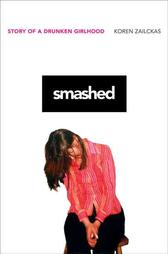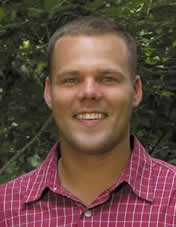
I do not mean for this blog to be negative. I do realize, however, that many of the issues that face students as they transition from high school to college can have a negative tone. This blog exists to alert readers of these challenges and to be honest about the reality that students will face. Stated positively, my hope is for readers to be made aware of potential pitfalls for students so that those charged with helping students navigate this transition can take a proactive approach. One of those pitfalls is binge drinking. This is no surprise: drinking is a major problem on today’s college campus.
The memoir
Smashed by Koren Zailckas has once again made national news. On January 31st it was re-released as a paperback. The book chronicles Koren’s life who, from age 14 on, began drinking everything she could get her hands on. Her trouble with binge drinking reached its zenith while at Syracuse University. CPYU research specialist, Doug West, reviewed the book when it first came out. Doug says it well, “Smashed is an engaging, insightful, disturbing, profane and despairing book, which every parent, or adult who works with teens will want to avoid, but needs to read.” (You can read Doug’s review
here.)
Another thing that we may want to avoid, but should probably read, is a recent interview with the author. The interview is from the “Gothamist,” a website dedicated to all things New York, the city in which Koren now resides. You can read the entire interview
here. What follows are a few parts that I found most interesting and helpful:
Smashed came out when you were only 24, chronicling a decade of excessive drinking. At what point did you decide that you had a problem, and when did you start working on the book? Did you know it was going to be a book when you began writing about your alcohol issues?Around the time I quit drinking and I became preoccupied with this old memory of the night that I had my stomach pumped when I was 16. I hadn’t thought about that night in a long time, but suddenly I couldn’t get it out of my head. So I sat down and wrote what became that chapter in Smashed.
Around the same time, I was hearing a lot in the news about “girls of my generation” and how we were drinking younger and more than generations of women before us. The Harvard School of Public Health was releasing the findings of its college alcohol study. Time ran a cover story about female binge drinkers. And I didn’t agree with what the psychologists and the sociologists, the clinicians and the statisticians had to say, which was: “girls today are drinking more because they’re just so damn liberated, because they’re bursting with confidence and (gag) girl power, because they believe they can match boys everywhere, including the bar.” I thought they really missed the mark. In my own experience, I knew my female friends and I drank largely because it was an expression of our unhappiness or our lack of confidence. It occurred to me that I could offer a younger perspective. I wasn’t as far removed from the realities of college life.
In an interview, you said, "I always thought that drinking was a womanly thing to do." Can you elaborate on that statement? When you say "womanly," you don't mean feminine, right? Because the drinking in your book can hardly be described as girlish.Yeah. “Womanly” feels like the right word. Because, to me, “womanly” is the sum of “grown-up” and “feminine.” Historically, I think a woman with a drink in her hand always ran the risk of being seen as masculine. But that’s changed. Especially in the wake of malternative beverages: Smirnoff Ices and Bacardi Silvers, drinks that are sweet and sudsy. In the late 1990s, alcohol companies began manufacturing and marketing “girlie drinks,” essentially. Vodka went vanilla flavored. Packaging turned pink and purple. Drinking is more feminine than it’s ever been. And by the same token, to a young person, it’s still a marker of maturity.
You grew up in a comfortable home, with a supportive family, and they were largely clueless about your extracurricular drinking and partying. Do you have any advice for parents? At what age should they talk to their kids about drinking, and what message should they be sending? Do you think there's anything more your parents could have done for you?Yeah. Unfortunately. I made some admissions in Smashed that awed my poorparents. Before they read the manuscript, they never suspected my friends and I nicked booze from their liquor cabinet. They never knew what my best friend and I really did when we snuck out of a hotel during a family vacation. They didn’t realize how much and how often I was drinking in college, some five hours and three hundred miles away from them. I don’t think this indicates any negligence on my parents’ part. Quite the opposite. As a teenager, my parents felt overly present. They felt omnipresent. It just goes to show what a miserable sneak I was at that time. And it also speaks to how much underage drinking takes place under the cover of secrecy. In the end, I think my parents did everything they could think of to keep me sane and healthy and safe. I had a will to drink, so I found a way to drink.



